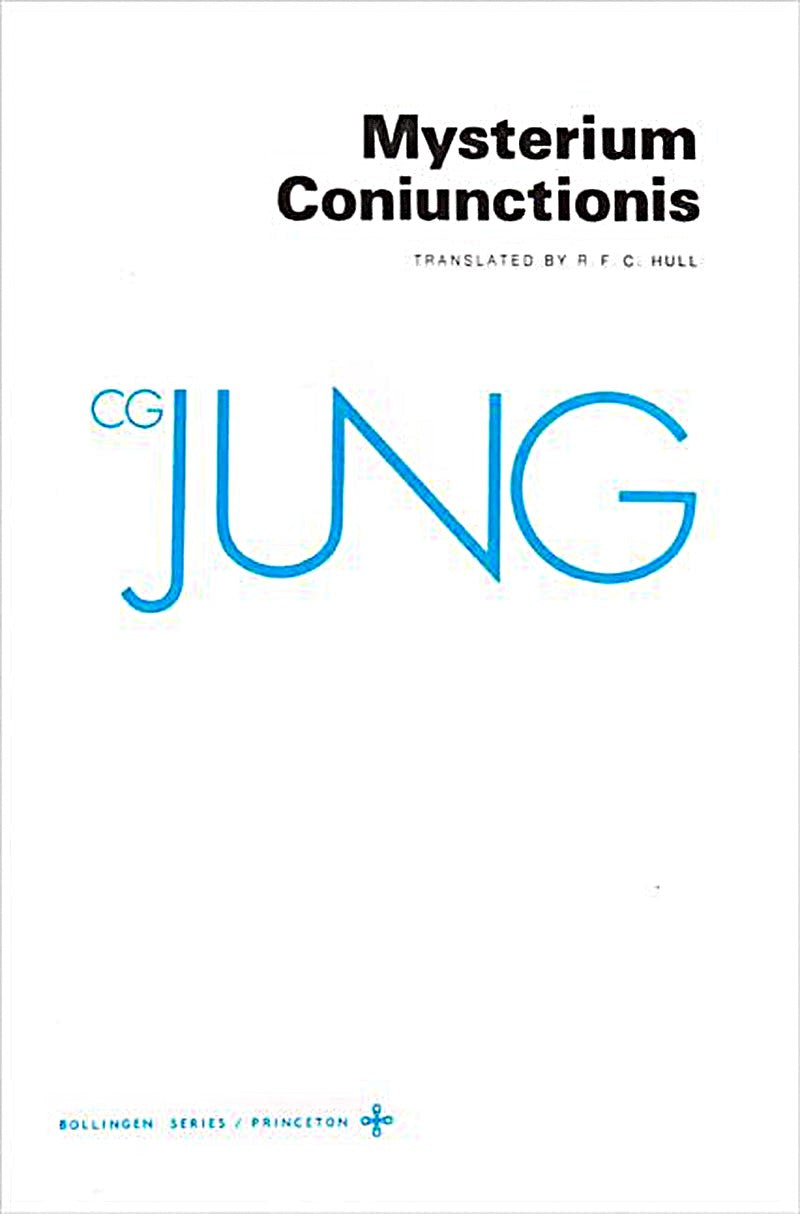Bust-Down Books
Mysterium Coniunctionis by Carl Gustav Jung & R.F.C. Hull
Mysterium Coniunctionis by Carl Gustav Jung & R.F.C. Hull
Couldn't load pickup availability
Mysterium Coniunctionis
by Carl Gustav “CG” Jung
Translated by R.F.C. Hull
Studies of the Psyche
The central theme of Mysterium Coniunctionis is the synthesis of opposites, where Jung explores how various oppositional forces within the psyche can be integrated, drawing parallels between psychological processes and alchemical practices. The title itself translates to "the mystery of the conjunction" which refers to the union of contrasting elements, such as the conscious and unconscious mind.
Mysterium Coniunctionis, Volume 14 of The Collected Works of C. G. Jung, is a significant work by the renowned Swiss psychiatrist and psychoanalyst Carl Jung. This volume is particularly notable as it represents Jung's last major work, completed when he was 81 years old.
In this work, Jung delves into several key subjects, including alchemy and psychology, where he examines the symbolic connections between alchemical processes and psychological transformation, suggesting that alchemy serves as a metaphor for inner psychological work. Additionally, the book discusses the concept of three conjunctions, which involve integrating various aspects of the psyche, including the conscious and unconscious.
Jung analyzes various symbols and myths, particularly focusing on how they express the relationship between opposites; for instance, he interprets the biblical figures of Adam and Eve as alchemical symbols. Furthermore, he addresses mystical paradoxes through the term mysterium coniunctionis, which describes the mystical experiences and paradoxes that arise from the integration of opposites. Jung also explores how different cultures and religions interpret the union of opposites, providing a broader context for his psychological theories.
This volume was completed in 1960, shortly before Jung's death in 1961, and it encapsulates his lifelong exploration of the human psyche and its complexities. Jung's work has had a profound impact on psychology, particularly in the fields of analytical psychology and depth psychology, with foundational concepts such as archetypes, the collective unconscious, and individuation shaping our understanding of human behavior and motivation.
His approach in this volume reflects his interdisciplinary interests, merging psychology, philosophy, and spirituality, which has made his work relevant across various fields.
In summary, Mysterium Coniunctionis is a rich and complex exploration of the integration of opposites within the psyche, drawing on alchemical symbolism and offering insights into the human experience.
It stands as a testament to Jung's enduring legacy in the study of psychology and the understanding of the self.
One of the Final Works of The Godfather and Pioneer of Depth Psychology and Psychoanalysis
|| Books on Alchemy & Psychology ||
Books on The Shadow || Archetype & Dream Analysis + Studies of the Unconscious || Translated by R.F.C hull
Share

